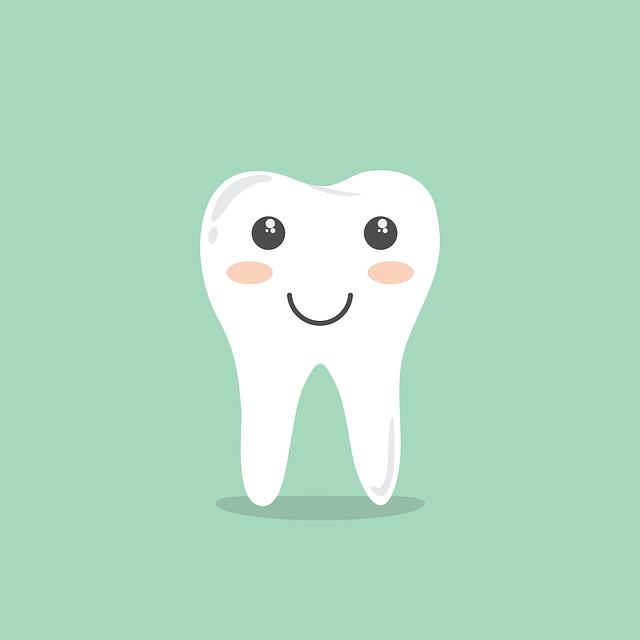Explore the world of awake bruxism, a condition that affects many individuals. Gain insight on what it is and how to effectively manage it.
1. Understanding Awake Awareness: What Is Awake Bruxism?
Awake bruxism, also known as awake grinding or clenching of the teeth, is a common condition that affects many individuals. This condition occurs when a person grinds or clenches their teeth during waking hours, often unconsciously. Unlike nighttime bruxism which occurs during sleep, awake bruxism can be more difficult to identify and manage.
Some key characteristics of awake bruxism include:
- Grinding or clenching of teeth during the day
- Tightness or pain in the jaw muscles
- Damage to teeth, such as wear or fractures
It is important to understand that awake bruxism can be triggered by various factors, such as stress, anxiety, or even a misaligned bite. Seeking professional help from a dentist or healthcare provider can help diagnose and treat this condition effectively. By raising awareness about awake bruxism and its potential causes, individuals can better understand and manage this common dental issue.
2. Signs and Symptoms of Awake Bruxism
Awake bruxism can often go unnoticed, as it occurs during waking hours when individuals may be less aware of their habits. However, there are certain signs and symptoms that can point to the presence of awake bruxism. These include:
- Excessive teeth grinding or clenching
- Tight or sore jaw muscles
- Headaches, particularly in the temples
- Inflammation or pain in the jaw joint
- Tooth sensitivity or pain
If you notice any of these symptoms, it is important to consult with a dentist or healthcare provider. They can assess your condition and provide recommendations for managing awake bruxism. In some cases, treatment may be necessary to prevent further damage to the teeth and jaw joint. By being aware of the , individuals can take proactive steps to address the condition and promote oral health.
3. The Potential Causes of Awake Bruxism
Some potential causes of awake bruxism include:
- Stress and anxiety: Emotional stress and anxiety can lead to teeth grinding during waking hours.
- Muscle tension: Tense jaw muscles, often due to poor posture or overuse, can contribute to awake bruxism.
- Misaligned bite: If your teeth do not properly align when you bite down, it can result in grinding and clenching.
It is important to note that these factors can vary from person to person, and individuals may experience awake bruxism for a combination of reasons. Identifying the underlying cause of teeth grinding can help in developing an effective treatment plan to manage the condition. Consulting with a dentist or healthcare provider is recommended for diagnosis and personalized recommendations.
4. The Impact of Awake Bruxism on Oral Health
Awake bruxism, also known as daytime teeth grinding, can have a significant impact on oral health. The constant clenching and grinding of teeth during waking hours can lead to a variety of problems, including:
- Excessive wear on tooth enamel
- Tooth sensitivity
- Fractured or chipped teeth
- Jaw pain and headaches
These issues can not only affect the appearance of your smile but also your overall oral health and well-being. It is important to address awake bruxism promptly to prevent further damage and discomfort.
While the exact cause of awake bruxism is not always clear, stress and anxiety are commonly associated with this condition. Managing stress through relaxation techniques, exercise, and seeking professional help if needed can help reduce teeth grinding during the day. Additionally, wearing a custom-fitted mouthguard at night can help protect your teeth from the effects of bruxism. Regular dental check-ups can also help monitor and address any potential damage caused by daytime teeth grinding.
5. Strategies for Managing Awake Bruxism
If you’re dealing with awake bruxism, there are several strategies you can try to help manage the condition:
- Practice stress-reducing techniques such as yoga, meditation, or deep breathing exercises to help relax your mind and body.
- Wear a custom-fitted mouthguard while awake to protect your teeth from grinding and clenching.
- Avoid caffeine, alcohol, and nicotine, as these substances can worsen bruxism symptoms.
6. Tips for Preventing Awake Bruxism
One effective tip for preventing awake bruxism is to practice relaxation techniques before bedtime. This can help reduce stress and anxiety, which are common triggers for teeth grinding. Try activities such as deep breathing, meditation, or gentle yoga to relax both your mind and body.
Another helpful tip is to avoid caffeine and alcohol in the hours leading up to bedtime. These substances can increase jaw tension and disrupt your sleep, making bruxism more likely to occur. Opt for a soothing cup of herbal tea or warm milk instead to promote relaxation.
Lastly, consider wearing a nightguard while you sleep to protect your teeth from grinding. A custom-fitted nightguard can help prevent damage to your teeth and alleviate the symptoms of bruxism. Consult with your dentist to see if this option is right for you.
7. Seeking Professional Help for Awake Bruxism
There are various professionals who can provide assistance in treating awake bruxism. It is important to seek help from the following experts:
- Dentist: A dentist can create a custom-made mouthguard to protect your teeth from grinding during the day.
- Physical Therapist: A physical therapist can help identify muscle tension and provide exercises to relax the jaw muscles.
- Psychologist: A psychologist can help address any underlying stress or anxiety that may be triggering the bruxism.
Remember, seeking professional help is crucial in managing awake bruxism effectively and preventing further damage to your teeth and jaw.
8. Lifestyle Changes to Combat Awake Bruxism
One effective lifestyle change to combat awake bruxism is to incorporate stress-reducing techniques into your daily routine. This can include activities such as meditation, yoga, or deep breathing exercises. By managing stress levels, you can decrease the likelihood of clenching or grinding your teeth during waking hours.
Another important lifestyle change is to avoid caffeine and alcohol consumption, especially in the hours leading up to bedtime. Both substances can exacerbate bruxism symptoms and negatively impact your quality of sleep. Instead, opt for calming herbal teas or warm milk before bedtime to promote relaxation.
Additionally, practicing good sleep hygiene can help alleviate awake bruxism. Establishing a regular sleep schedule, creating a comfortable sleep environment, and implementing a relaxing bedtime routine can all contribute to better overall sleep quality and reduce teeth grinding while awake. Remember to consult with a healthcare professional for personalized advice and treatment options.
9. The Importance of Stress Management in Addressing Awake Bruxism
Awake bruxism, or teeth grinding during the day, is a condition that affects many individuals and can lead to various dental and health issues if left unchecked. One key aspect in addressing awake bruxism is stress management. Here’s why stress management is crucial in combating this condition:
- Reduced Muscle Tension: Stress can lead to increased muscle tension, including in the jaw muscles responsible for bruxism. By managing stress effectively, the muscle tension can be reduced, decreasing the likelihood of teeth grinding.
- Improved Sleep Quality: Stress is often linked to poor sleep quality, which can exacerbate bruxism. By managing stress levels, individuals can improve their sleep patterns, reducing the chances of awake bruxism episodes.
- Enhanced Overall Well-being: Chronic stress can have detrimental effects on both physical and mental health. By prioritizing stress management techniques such as mindfulness, exercise, and relaxation exercises, individuals can improve their overall well-being and reduce the impact of awake bruxism.
10. Conclusion: Taking Control of Awake Bruxism for Better Oral Health
In conclusion, managing awake bruxism is crucial for maintaining optimal oral health. By taking control of this condition, individuals can prevent long-term damage to their teeth and jaw muscles. Here are some key takeaways to help you better manage awake bruxism:
- Practice stress-reducing techniques such as meditation or yoga to alleviate anxiety and tension that may contribute to teeth grinding.
- Use a custom-made night guard to protect your teeth from the effects of grinding and clenching while you sleep.
- Regularly visit your dentist for check-ups and cleanings to monitor any changes in your dental health and address any issues early on.
By implementing these strategies and working closely with your dental care provider, you can effectively take control of awake bruxism and improve your overall oral health for the long run. In conclusion, awake bruxism is a common condition that can be managed through stress reduction techniques, proper sleep hygiene, and dental treatments. Stay informed and proactive to prevent further damage to your teeth and jaw.







